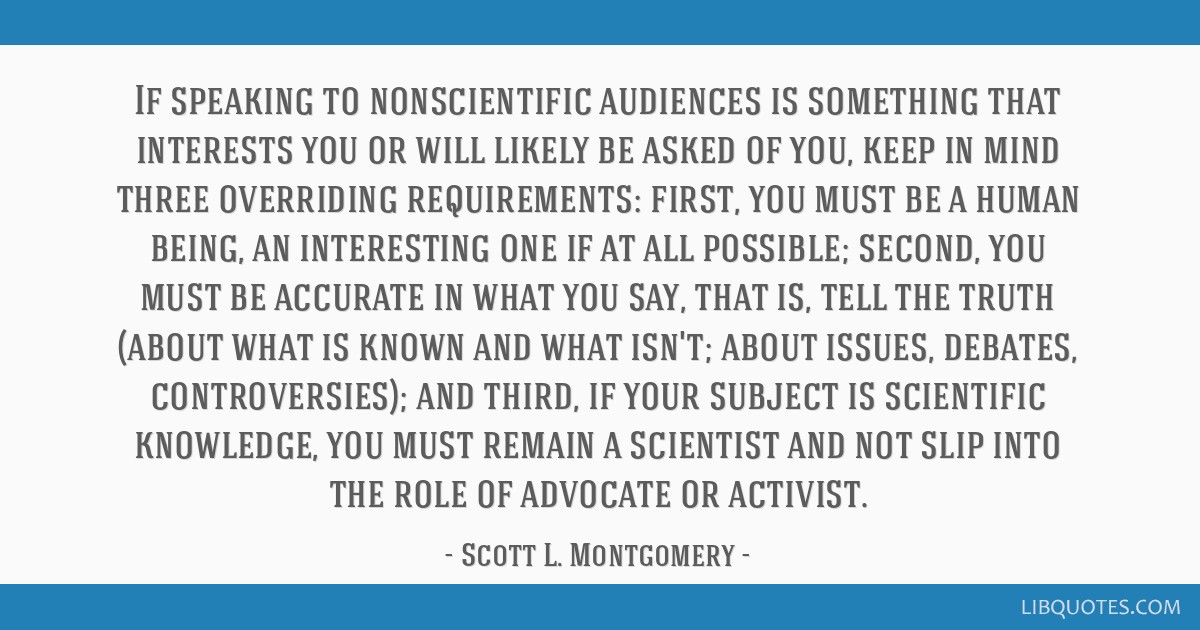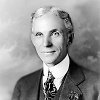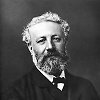If speaking to nonscientific audiences is something that interests you or will likely be asked of you, keep in mind three overriding requirements: first, you must be a human being, an interesting one if at all possible; second, you must be accurate in what you say, that is, tell the truth (about what is known and what isn't; about issues, debates, controversies); and third, if your subject is scientific knowledge, you must remain a scientist and not slip into the role of advocate or activist.
The Chicago Guide to Communicating Science, second edition, University of Chicago press, 2017, page 302 (ISBN 978-0-226-14450-4).























